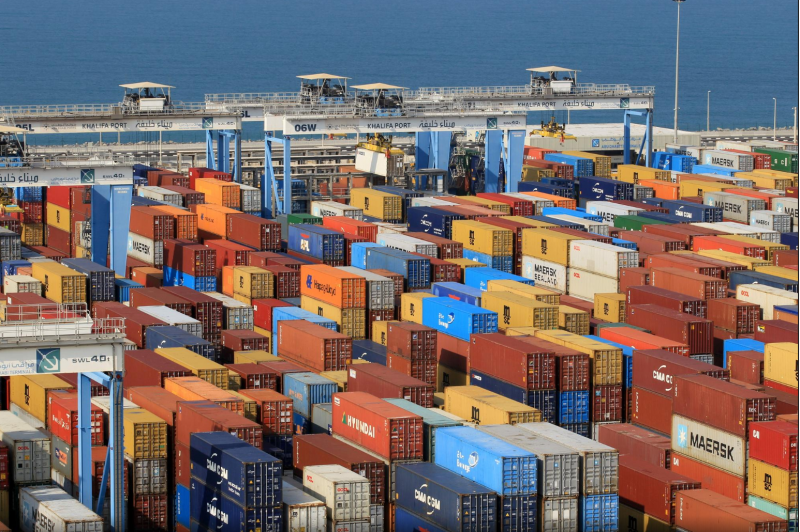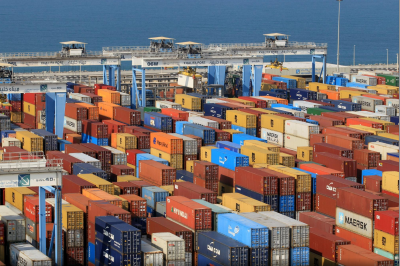Under the title "Abu Dhabi Ports Aims to Capture Its Share of Cheap Debt," Bloomberg Al-Sharq reported that Abu Dhabi Ports is planning to sell more debts to support its investment projects, following the issuance of bonds worth one billion dollars on Wednesday. The Chief Financial Officer, Martin Aroob, revealed in an interview that the government-owned port operator will consider a mix that includes direct loans, in addition to issuing bonds and sukuk, as well as injecting liquidity to finance growth operations. He added that the company plans to invest 4.2 billion dollars over the next five years and may spend more on acquisitions.
For his part, the Chairman of Abu Dhabi Ports, Falah Mohammed Al Ahbabi, stated in a statement that the demand for bonds, which exceeded the targeted subscription size by about 4.5 times, "reflects international confidence in the strength of our business and our strategy," noting that the company's first-ever bond issuance will also help the country in its efforts to diversify its economy and funding sources.
**Growth Despite COVID-19**
The UAE, the third-largest producer in the Organization of the Petroleum Exporting Countries (OPEC), has used its oil wealth to expand its economy and diversify towards sectors such as tourism, international trade, and transport. Companies operating in those sectors struggled last year as the COVID-19 pandemic led to reduced energy use, curbed air travel, and prevented trade flows.
The Chief Strategist at Abu Dhabi Ports, Ross Thompson, explained that the volume of business managed by the company, owned by the sovereign fund Abu Dhabi Holding Company (ADQ), has largely returned to pre-COVID-19 levels. However, he noted that cruise lines and new car shipments remain below pre-pandemic levels and are likely to remain weak for an extended period.
Abu Dhabi Ports' revenues rose by 24% last year, reaching 933 million dollars. Earnings before interest, taxes, depreciation, and amortization increased by 37% to 422 million dollars. Martin Aroob confirmed that the company aims to continue growing at double-digit rates, declaring that it has no plans to sell shares to investors or go public and can finance its investments through cash flows, debts, and additional capital injections from Abu Dhabi Holding Company.




